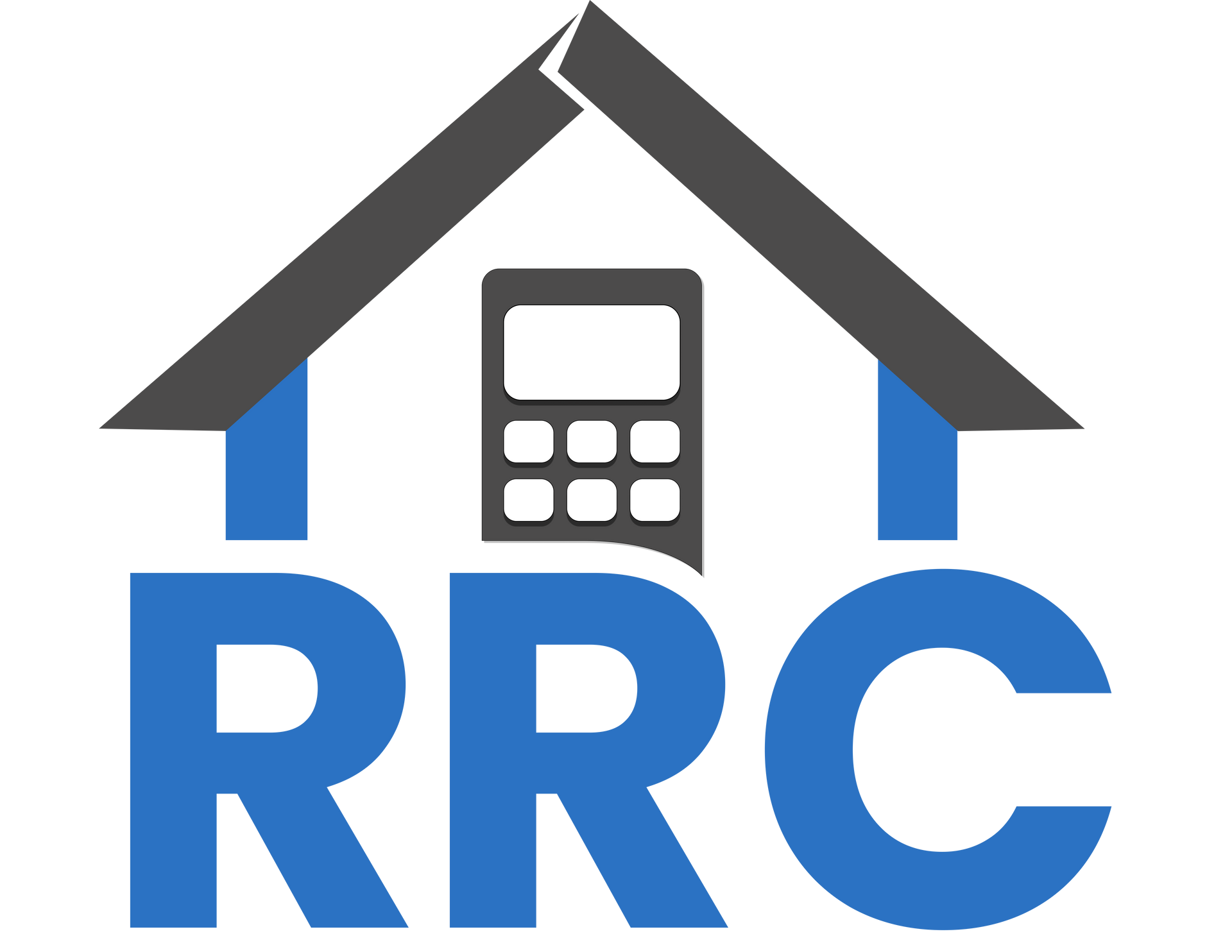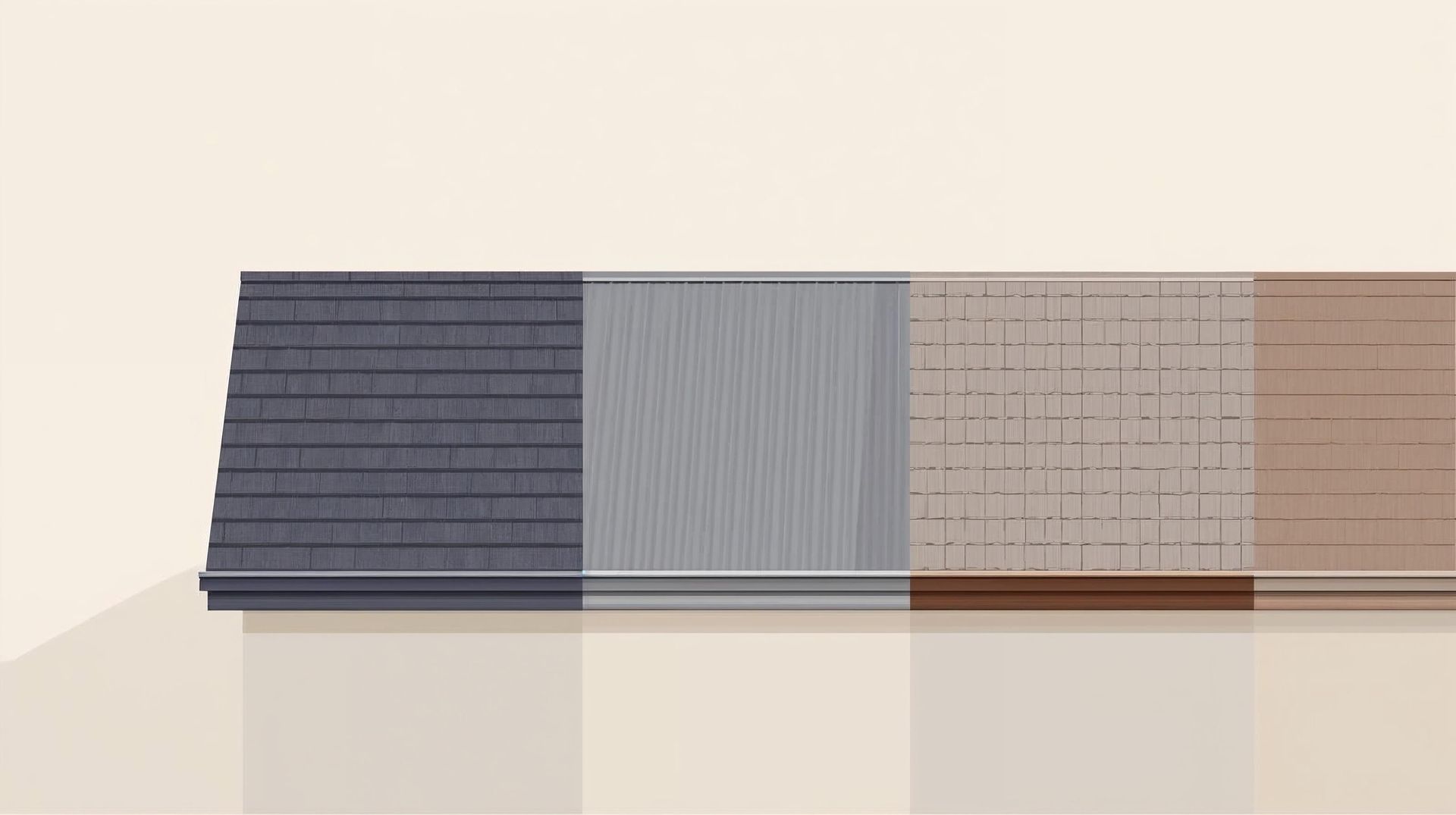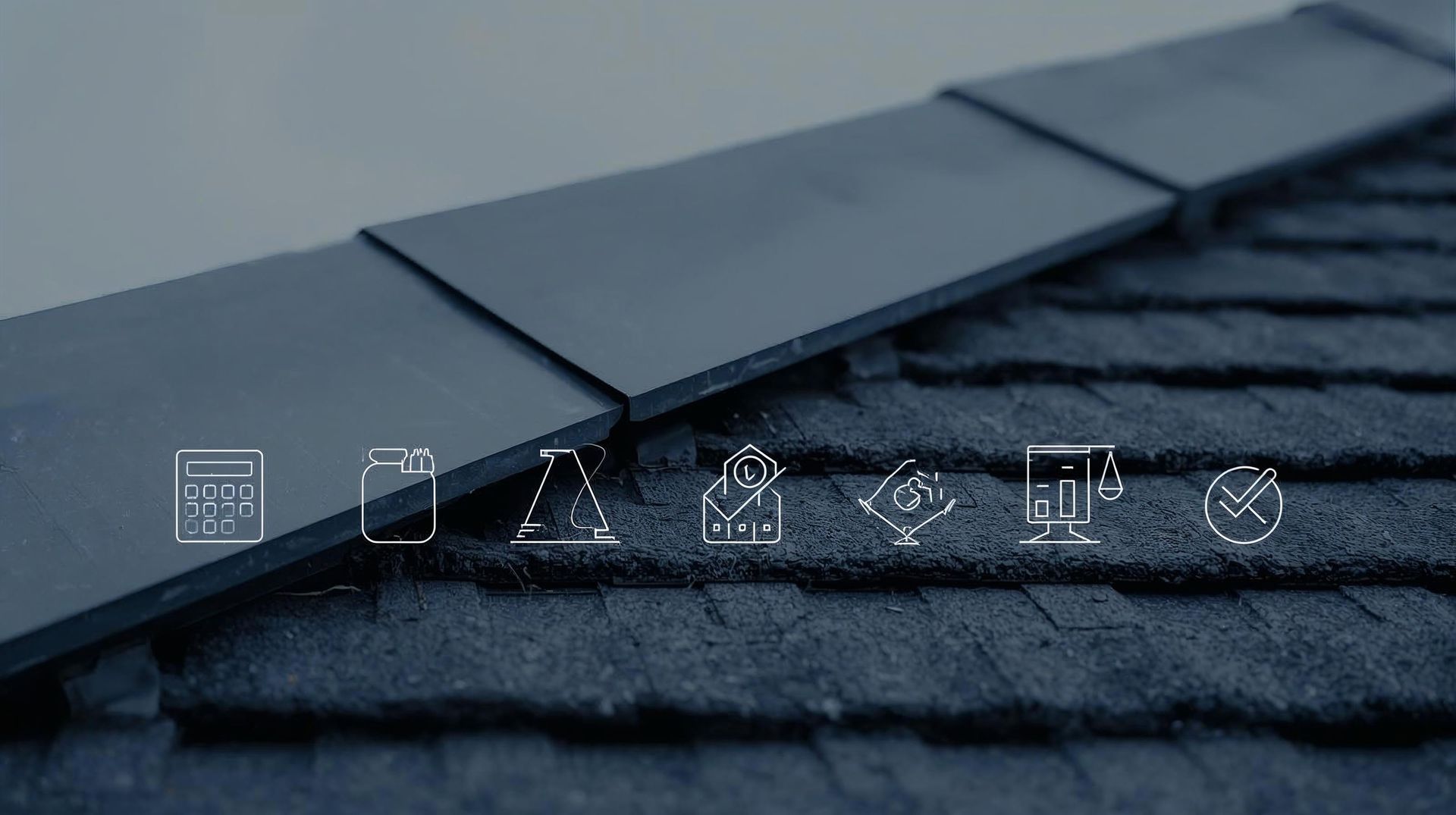Roof Replacement Cost by State: How Prices Vary Across the U.S.
Key Takeaways
- Roof replacement costs vary dramatically by state, with California averaging $12,000-$25,000 while states like Georgia range from $7,000-$14,000 for similar asphalt shingle roofs
- Labor costs account for 60-70% of total project cost, with hourly rates ranging from $40-$90 per worker, depending on geographic location and market conditions
- Building codes and climate requirements significantly impact material costs and installation costs, especially in hurricane zones, earthquake areas, and fire-prone regions
- The average roof replacement cost for a standard 2,000 square foot home ranges from $8,960 to $62,720 nationally, depending on roofing material choice
- Using state-specific pricing data and getting multiple quotes from local roofing contractors provides the most accurate estimates for your specific market and roof type
Start with our free roof replacement cost calculator to get instant estimates tailored to your state, roof size, and roofing material preferences.
Roof Replacement Cost Calculator: State-by-State Pricing Guide 2025
The average roof replacement cost nationally is $11,000, with most homeowners spending between $7,000 and $14,500 for a full roof replacement using standard asphalt shingles.
However, this total cost can reach $60,000+ in premium markets or with premium materials, making location-specific research essential for accurate budgeting.
State-by-State Roof Replacement Cost Comparison
Regional pricing variations reflect local economic conditions, labor costs, material availability, and regulatory requirements that create distinct markets across the country.
| State | Average Cost Range | Per Square Foot | Labor Cost Range |
|---|---|---|---|
| California | $12,000 - $25,000 | $6.00 - $12.50 | $70 - $90/hour |
| Texas | $8,000 - $16,000 | $4.00 - $8.00 | $45 - $70/hour |
| Florida | $10,000 - $20,000 | $5.00 - $10.00 | $50 - $75/hour |
| New York | $11,000 - $22,000 | $5.50 - $11.00 | $65 - $85/hour |
| Georgia | $7,000 - $14,000 | $3.50 - $7.00 | $40 - $60/hour |
| Ohio | $7,000 - $13,000 | $3.50 - $6.50 | $40 - $55/hour |
| North Carolina | $7,500 - $14,500 | $3.75 - $7.25 | $42 - $65/hour |
| Illinois | $8,500 - $15,000 | $4.25 - $7.50 | $50 - $70/hour |
| Arizona | $8,000 - $14,000 | $4.00 - $7.00 | $45 - $65/hour |
| Washington | $9,000 - $16,000 | $4.50 - $8.00 | $55 - $75/hour |
Also Read: Understanding Your Roofing Estimate: A Line-by-Line Breakdown
High-Cost States: Premium Roofing Markets
Understanding why certain states command premium pricing helps homeowners budget appropriately and identify potential cost to replace factors.
California leads the nation in roof replacement costs due to multiple interconnected factors:
- Stringent building codes requiring earthquake retrofitting and fire-resistant materials
- Premium labor costs in major metropolitan areas ($70-$90 per hour)
- Complex permitting processes and environmental regulations
- Diverse climate zones require specialized roofing materials and techniques
- High demand for energy-efficient and solar-ready installations
New York's elevated costs reflect urban market challenges:
- Complex building codes and strict safety requirements
- Premium labor costs in metropolitan areas ($65-$85 per hour)
- Logistics challenges, including building height restrictions and material delivery
- Harsh winter requirements for ice dam prevention and thermal protection
- Limited contractor availability in dense urban environments
Mid-Range States: Balanced Roofing Markets
States offering moderate pricing balance competitive markets with quality requirements and reasonable regulatory frameworks.
Texas provides competitive roof replacement costs with regional variations:
- Houston and Dallas metropolitan areas: $10,000-$18,000 range
- Rural areas: $8,000-$14,000 range
- Frequent severe weather requires impact-resistant roofing materials
- Large contractor market creating competitive pricing
- Moderate building codes with hurricane zone requirements in coastal areas
Florida's pricing reflects specialized climate requirements:
- Hurricane building code compliance adds $2,000-$4,000 to base costs
- Year-round construction season maintains steady labor costs
- High humidity requires specialized ventilation systems
- Impact-rated materials are mandatory in many coastal zones
- Competitive market with numerous qualified roofing companies
Budget-Friendly States: Affordable Roofing Markets
Several states offer excellent value for roof replacement projects through competitive markets and moderate regulatory requirements.
Georgia provides exceptional roof replacement value:
- Competitive labor costs ranging from $40-$60 per hour
- Moderate building codes without extreme weather requirements
- Efficient material distribution networks reduce material costs
- Extended construction seasons allow for flexible project timing
- Strong contractor competition in the Atlanta metro and rural areas
Ohio consistently offers affordable options:
- Abundant skilled workers keep labor costs reasonable ($40-$55/hour)
- Efficient supply chains reduce material cost premiums
- A moderate climate reduces specialized material requirements
- Lower living expenses translate to competitive contractor rates
- Well-established contractor networks throughout the state
Also Read: Are Metal Roofs Worth It? A Detailed Cost vs. Benefit Analysis
Roofing Material Cost Variations by State
Material costs vary significantly based on regional availability, preferences, and transportation expenses.
Asphalt Shingles Regional Pricing
Asphalt shingles remain the most popular choice with state-by-state variations:
- Basic 3-tab shingles: $3.50-$5.50 per square foot installed
- Architectural shingles: $4.50-$8.00 per square foot installed
- Premium designer shingles: $6.00-$12.00 per square foot installed
- Regional availability: affecting pricing by 15-25%
- Transportation costs: impacting remote market pricing
Metal Roofing State Variations
Metal roofing costs reflect regional expertise and material preferences:
- Steel panels: $4.00-$12.00 per square foot installed
- Aluminum systems: $6.00-$16.00 per square foot installed
- Copper installations: $12.00-$40.00 per square foot installed
- Coastal states: showing preference for corrosion-resistant options
- Northern markets: emphasizing snow-shedding capabilities
Premium Materials Market Differences
Slate tiles and clay tiles pricing vary dramatically:
- Slate roof installations: $8.00-$35.00 per square foot
- Clay tiles: $11.00-$22.00 per square foot
- Regional expertise: significantly affecting installation costs
- Transportation: expenses for heavy materials
- Limited contractor: availability in some markets
Factors Driving State-Level Cost Differences
Multiple interconnected factors create significant pricing variations across state markets that affect total project cost.
Labor Market Conditions significantly impact costs:
- Metropolitan areas $60-$90 per hour for skilled workers
- Rural markets $40-$60 per hour for similar skills
- Union presence affects wage standards and benefits
- Contractor availability is creating supply/demand imbalances
- Seasonal demand fluctuations affect pricing
Regulatory Environment influences project costs:
- Building codes require specific materials or installation methods
- Permit fees range from $100-$2,000+, depending on location
- Inspection requirements are adding time and administrative costs
- Environmental regulations affecting material choices
- Safety standards impacting labor costs and project timelines
Climate and Weather drive material and installation requirements:
- Hurricane zones require impact-resistant materials and enhanced fastening
- Snow load areas needing structural upgrades and ice protection
- Fire-prone regions mandating fire-resistant roofing materials
- UV-intense climates require reflective or specialized materials
- Temperature extremes affect installation techniques and timing
Smart Budgeting Strategies for Any State
Successful roof replacement projects require understanding local market conditions and implementing cost-control strategies.
Research and Planning optimize project outcomes:
- Obtain free estimates from at least three qualified roofing contractors
- Request detailed breakdowns of material costs, labor costs, and fees
- Verify contractor licenses, insurance, and local references
- Research local building codes and permit requirements
- Compare quotes using standardized per square foot measurements
Timing and Scheduling strategies can save money:
- Schedule during contractors' slower seasons when possible
- Avoid peak storm seasons when demand drives up pricing
- Plan projects during optimal weather windows for your region
- Consider multi-season scheduling for complex projects
- Coordinate with insurance claim timelines if applicable
Material Selection Balance cost and performance:
- Choose regionally appropriate roofing materials for climate conditions
- Consider long-term value versus upfront replacement cost
- Evaluate warranty coverage and manufacturer support
- Research energy efficiency incentives and rebates
- Balance aesthetic preferences with practical requirements
Also Read: The Role of Roof Ventilation: Why It’s Crucial for a Healthy Roof and Home
Conclusion
Roof replacement costs vary dramatically across states due to labor costs, material availability, building codes, and climate requirements, creating unique regional markets. Understanding your state's specific conditions helps you budget effectively and choose appropriate roofing materials and contractors.
Most homeowners benefit from researching local market conditions, obtaining multiple accurate estimates, and selecting regionally appropriate solutions that balance upfront replacement cost with long-term value.
The key to successful roof replacement lies in thorough local market research, understanding regulatory requirements, and working with experienced roofing contractors familiar with regional conditions and building codes.
Ready to discover exact costs for your state and roof size? Use our free roof replacement cost calculator to get instant, location-specific estimates and connect with qualified local roofing contractors who understand your regional requirements and climate conditions.
What is the average roof replacement cost in 2025?
The national average roof replacement cost is $9,524, with most homeowners spending between $5,868 and $13,216 for a standard asphalt shingle roof. However, costs vary dramatically by state, ranging from $7,000 in budget-friendly markets like Georgia to $25,000+ in premium states like California. The total cost depends on roof size, roofing material choice, labor costs, and local building codes.
How much does roof replacement cost per square foot?
Roof replacement costs typically range from $4 to $11 per square foot for standard installations, with material costs of $1-$30 per square foot and labor costs of $40-$90 per hour. Asphalt shingles cost $4-$8 per square foot installed, while metal roofing ranges from $6-$16 per square foot, and premium materials like slate tiles can cost $10-$30 per square foot.
What factors affect roof replacement costs by state?
Several key factors drive state-by-state cost variations: labor costs (ranging from $40-$90 per hour), local building codes requirements, material availability and transportation costs, climate-specific requirements (hurricane resistance, snow loads), permit fees, and regional contractor competition. States with higher living costs, stricter codes, or extreme weather requirements typically see 50-100% higher costs than national averages.
Should I replace my entire roof or just do roof repairs?
Minor repairs typically cost $400-$1,900, while major repairs can reach $1,150-$5,000. Consider full roof replacement when: your roof is over 20 years old, you have widespread missing shingles or damage, roof leaks occur in multiple areas, or repair costs exceed 25% of the replacement cost. A professional roof inspection can help determine whether roof repairs or replacement offers better long-term value.
How can I save money on roof replacement costs?
Several strategies help reduce total project cost: obtain multiple quotes from licensed roofing contractors, schedule during off-peak seasons when labor costs may be lower, choose regionally appropriate roofing materials to minimize transportation costs, consider architectural shingles over premium materials for better value, research local permits and building codes to avoid surprises, and evaluate financing options to spread costs over time. Always verify contractor credentials and warranties to avoid costly future problems.



